The Uniform Civil Code: A Threat to India's Religious Diversity
When a policy becomes subject to intellectual debate, it often indicates a significant underlying issue within its implementation. This applies to policies and schemes whether orchestrated by governmental bodies or charitable foundations. The formulation of laws and policies serves as a crucial pillar meant to uphold the public interest in a fair and just manner. However, true justice cannot be achieved solely by catering to the demographic majority; it necessitates a comprehensive consideration of all segments of society, including marginalized groups. Failure to adhere to this principle undermines the essence of justice, which should protect the individual, religious, and constitutional rights of all citizens.
Consequently, a nation will struggle to uphold justice for its entire diverse population if it neglects these considerations. Unfortunately, this flawed approach to policy-making often leads to evident instances of injustice, as exemplified by the controversial Uniform Civil Code (UCC) Bill. The UCC demands the repeal of personal laws for all religions. If implemented, the UCC would scrutinize the fundamental laws of every religious community in India, whether Islam, Hinduism, Jainism, Christianity, Buddhism, or others. Therefore, it is unreasonable to assume that the UCC would only adversely affect Islamic tenets and Sharia Fundamentalism. The following statements of fact and reliable data address the question: "Is the Uniform Civil Code Actually Against Muslims Only?"
As documented by the e-journal "Legal Service India," the Uniform Civil Code is an Indian mandate to replace all personal laws based on the scriptures and customs of each major religious community in India with a common set of rules governing every citizen. This common code ensures uniformity in governance, constitutionalizing, and executing laws over all civilians. These personal laws, pertaining to various religions such as Hinduism, Islam, Buddhism, and Judaism, encompass matters like property, marriage, divorce, inheritance, and succession.
Given that the UCC relates primarily to these matters, which are also addressed within the framework of Islamic Sharia Law and are key aspects of the Muslim Personal Law Board, the opposition of Muslims to this government initiative is justified and should be properly acknowledged. Logically, one cannot argue that the UCC targets only Islamic principles based solely on Muslim protests. If they are protesting, it indicates an understanding of the UCC's broader implications for all religious communities.
Legal Framework of the Islamic Personal Law
Similar to other belief systems, Islam possesses its own set of principles and values that provide guidance to its adherents. The foundation of Islamic Sharia Law distinguishes it significantly from the legal frameworks of other religions. The rights granted to Muslims in socio-economic dealings also differ from those of other religious communities. Islam is considered by many to be the most inclusive and just religion in the world. No one, whether male or female, is left neglected or deprived of their rights. The principle of equality is preserved for all, regardless of caste, creed, or color. Therefore, attempting to justify the Uniform Civil Code (UCC) by making unfounded arguments against the clear tenets of Islamic Sharia Law is ineffective.
Historically, Islamic Sharia Law allows Muslim women to inherit half of what a Muslim male inherits. This method of property inheritance supports the idea of justice for all, irrespective of gender. Women, traditionally considered members of their husband's family after marriage, can inherit property from both their husband’s family and their own family (father’s property). Mathematically, when these two portions are combined, the total inheritance for a woman could potentially exceed that of a Muslim man.
In cases where a man inherits double that of a female, this is designed to assist him in fulfilling his financial responsibilities towards his wife, children, and elderly parents. A husband is responsible for all the expenses of his family, including those of his wife, children, and aging parents. In this context, the logic of inheritance provides him with a slightly larger share to help meet these obligations.
And a wife receives half of what a man inherits because she does not bear the same financial responsibilities when her husband is present. Therefore, discussing inheritance solely within the context of family property may lead to a skewed understanding of equality, particularly in debates surrounding the Uniform Civil Code (UCC). Every aspect should be considered in such discussions, especially when the premises are intended to legislate a law like the UCC. Taking a comprehensive approach by considering the inheritance of women's property from both the husband's and father's sides helps provide a more balanced perspective during the argument.
Imam Al-Tabari, in his masterpiece Tafsir al-Tabari, notes that during the age of Arab ignorance (Jahiliyyah period), women were not permitted to inherit anything from either their husband or their own family. However, the advent of Islam transformed their status, granting them the right to property inheritance. Allah testifies to this in Surah Al-Nisa: “Allah thus commands you concerning your children: the share of the male is like that of two females.” Allah further elaborates on the wisdom behind Islamic inheritance laws in the subsequent verses of the same surah, helping us understand how Islam upholds gender justice in every socio-economic aspect.
Marriage and Divorce; Incompatibility of UCC with Sharia Law
Since the emergence of Sharia Laws, the Islamic concepts of marriage and divorce have been the subject of heated debate, particularly concerning practices like polygamy and instant Triple Talaq. Triple Talaq, as defined by the Hanafi School of Thought, is an authority granted to a Muslim husband allowing him to divorce his wife instantly by uttering the word "talaq" three times. Islamic Sharia Law considers divorce, including talaq, as the most disliked yet permissible act. As Abdullah Bin Umar narrated from the Messenger of Allah ﷺ: “Of all the lawful acts, the most detestable to Allah is divorce.” According to Muslim Personal Law, the right to pronounce talaq is granted exclusively to the husband, while women are given the authority to seek “Khula” (a form of divorce initiated by the wife in return for a negotiable amount of money).
Now, if you ask why Muslim women should pay while asking for Khula, whereas Muslim men do not pay when pronouncing talaq, the answer lies in understanding the social and legal framework of marriage and divorce in Islam. Marriage in Islam is a social contract between a man and a woman, entered into with mutual consent. At the time of establishing this contract, Islam mandates that the husband pay a certain amount, called ‘Mehr,’ to the wife as a part of this agreement. This Mehr serves as a financial obligation from the husband to the wife as they begin their married life.
However, if the wife becomes dissatisfied with the marriage and finds it difficult to continue, she has the right to seek Khula, offering a sum in return for the separation. This payment is seen as a reciprocal act, as the husband initially paid Mehr to enter into the marriage, and now the wife pays to dissolve it. This system preserves a sense of equality within the framework of Islamic law, an aspect that may not be fully addressed or respected under the Uniform Civil Code (UCC). Therefore, the incompatibility of UCC with the personalized laws of various religions, including Islam, highlights the challenges and potential problems associated with implementing a uniform legal framework.
Furthermore, Muslim Personal Law permits a man to marry up to four women simultaneously, a practice known as polygamy in social studies. This has led to the perception that Islam deprives women of their rights, as the resources such as housing, property, and family commodities typically provided to one wife are instead shared among four, in contrast to the "one husband for one wife" theory. When a woman is the sole wife, her share of familial autonomy is often seen as greater compared to that of four wives sharing a single husband, as the resources and attention are divided.
However, the scope of Sharia Law is broader and more nuanced than what is often portrayed by artificial laws. Critics may argue that polygamy limits women's rights, but Islam views it as a way to expand and protect those rights. The concept of polygamy in Islam was introduced to preserve the rights of widows, orphans, and divorced women, ensuring that they are not deprived of a husband, family, children, livelihood, and a better life. Through polygamy, Islam actively promotes widow remarriage, which is why the percentage of widow remarriages is consistently higher among Muslims. According to the central survey Demography, the percentage of widow remarriages is highest among Muslims, particularly in the 35 to 37 age group, as Islam not only permits such marriages but also encourages them.
Moreover, Islamic Sharia Law does not allow polygamy without just cause; it requires that the husband's capabilities be thoroughly assessed. A man is permitted to marry up to four women only if he is capable of managing the responsibilities equally and providing for all his wives with justice. If a man cannot meet these conditions, he is not allowed to marry multiple wives. Thus, the Islamic approach to polygamy is deeply rooted in justice and the welfare of women, rather than mere permissiveness.
The Holy Quran proclaims:
وَإِنْ خِفْتُمْ أَلَّا تُقْسِطُوا۟ فِى ٱلْيَتَـٰمَىٰ فَٱنكِحُوا۟ مَا طَابَ لَكُم مِّنَ ٱلنِّسَآءِ مَثْنَىٰ وَثُلَـٰثَ وَرُبَـٰعَ فَإِنْ خِفْتُمْ أَلَّا تَعْدِلُوا۟ فَوَٰحِدَةً أَوْ مَا مَلَكَتْ أَيْمَـٰنُكُمْ ذَٰلِكَ أَدْنَىٰٓ أَلَّا تَعُولُوا۟
If ye fear that ye shall not be able to deal justly with the orphans, marry women of your choice, Two or three or four; but if ye fear that ye shall not be able to deal justly (with them), then only one, or (a captive) that your right hands possess, that will be more suitable, to prevent you from doing injustice.
How UCC Goes Against All Religions Streamed in the Heartland of India
All the above-mentioned provisions that have been included in Sharia Law are administered through Islamic Personal Laws under the Muslim Personal Law Application Act, 1937. The advent of the Uniform Civil Code (UCC) aims to completely replace all religious personal laws, with no exceptions. Consequently, under UCC, the Muslim Personal Provisions, along with the personal laws of other religions, would lose their space for execution. While Muslims could continue to live in India, they would be without the guiding framework of Islamic Sharia Law. This is one reason why Muslims are generally opposed to the UCC. But this raises a critical question: Is the Uniform Civil Code actually against Muslims only?
To answer this question, it’s essential to understand that the UCC is designed to establish a single Uniform Code of Conduct for all citizens, regardless of their religious affiliations. This is why the Act is termed "Uniform Civil Code." In India, every religion has its own unique norms and values, which the Constituent Assembly acknowledged by placing the discussion of UCC in the Directive Principles of State Policy while listing the Personal Laws of all religions under Fundamental Rights in Article 25. These Personal Laws were preserved to respect the distinct religious and social values of each community.
Historically, India, the second-most populous country in the world with approximately 1.4 billion people, has been celebrated as the largest democracy because it has democratically ensured justice for all, irrespective of caste, religion, gender, or race. A key feature of this justice was the respect for every religion, allowing them the facility to execute their Personal Laws according to their own values. However, the introduction of UCC challenges this tradition by proposing to replace all personal laws with a single uniform law governing everyone collectively.
The implementation of UCC would mean the rejection of personal laws such as the Hindu Marriage Act, 1955; the Hindu Code Bills, including the Hindu Succession Act, 1956; the Hindu Minority and Guardianship Act, 1956; the Hindu Adoption and Maintenance Act, 1956; the Indian Christian Marriage Act, 1872; the Parsi Marriage and Divorce Act, 1936; and the Muslim Personal Law Application Act, 1937. These laws have been the pillars supporting each religious community, allowing them to act in accordance with their personal norms and values.
Therefore, it is clear that the UCC is not just against Islam, but against all the religions practiced in the heartland of India. The logical consequence of implementing UCC would be that in India, Islam would exist without Sharia Law, Hinduism without its traditional practices, Christianity without the teachings of Jesus in daily life, Jainism without its core principles, Parsis without their values, and Buddhism without the norms taught by Buddha. In this way, the UCC fundamentally opposes the norms and values of all religions.
Conclusion
The Uniform Civil Code (UCC) does not just impact Islamic laws but also those of other major religions. If applied uniformly, the UCC could lead to confusion and disagreements over new laws. Implementing these ideas is not as straightforward as it might seem. Simply declaring that India is one family and therefore requires one law is a hypothetical argument that doesn’t hold up in practice. The practicality of UCC involves accommodating communities of all races, religions, castes, colors, and creeds. Given that India, with its strong institutions like the Supreme Court and Public Service Commissions, struggles to handle communal issues between groups like the Meities and Kukis in just one state, how could it manage the diverse national matters of 28 states and 8 Union Territories under the umbrella of a single law like the UCC?
India is rich in diversity—in culture, lifestyle, attire, food, beliefs, and mentality. This diversity necessitates diverse laws for the various sections of the Indian population. Uniformity does not make sense in every context. Where there is a demand for a uniform code of conduct, it should be fulfilled, but where the demand is absent, enforcing uniformity in laws is unnecessary. Instead of focusing on uniformity in religious laws, India should prioritize achieving uniformity in areas like equal representation in politics, women's reservation in both houses of parliament, job recruitment, and eliminating corruption nationwide. Since there is no significant demand for UCC in religious laws, its imposition should also be reconsidered. While the idea of UCC is well-intentioned, it is not practical in a highly diverse country like India, which is home to myriad religious communities and creeds.
Since India's independence, UCC has been preserved among the Directive Principles. For a final analysis, instead of forcefully imposing UCC, the Indian judiciary should consider reshaping the personal laws framework. For example, each religion could have its own Separate Court, Administrative Body, Sectarian Criminal Procedure, Punishment, and Allowances, all recognized by the government with the Supreme Court as the Apex Executor. In a diversity-friendly country, diverse minds have diverse demands for solutions. The imposition of UCC brings only a singular approach to solving issues in this religiously diverse nation, which cannot satisfy its needs. Diverse solutions are essential because UCC’s focus on uniformity cannot meet the demands of the plurality that defines India.
References:
- The Law Commission receives ‘overwhelming’ comments on UCC, allows 2 more weeks. (2023, July 14), Hindustan Times News Desk
- Uniform Civil Code, Wikipedia
- Krati Sachdev, (2022). Uniform Civil Code. Legal Service India (website), E-Journal.
- Muhammad Bilal, (2023, July 05). Why many Muslims in India are against the Uniform Civil Code? DailyO.
- Ziya Us Salam, (2023, July 04). Muslim organizations divided on Uniform Civil Code. The Hindu (Online)
- Hilal Ahmad, (2023, July 11). How Did UCC Become a Muslim Issue? There is an Invisible Apparatus at Work. The Print (Opinion Page)
- Kali Robinson, (2021, Dec 17). Understanding Sharia: The Intersection of Islam and the Law. CFR (Council for Foreign Relations)
- Michael Shriney, (2022, August 26). Sharia Law in India. iPleaders (Powered by LawSikho)
- Wajahat Ali and Matt Duss, (2011, March 31). Understanding Sharia Law. American Progress (CAP)
- Agarwala, S. N. "Widow Remarriages in Some Rural Areas of Northern India." Demography 4, no. 1 (1967): 126-134. Retrieved on August 10, 2024 https://doi.org/10.2307/2060356.
- Kalpana Jain, (2021, August 31). What is Sharia? Islamic law shows Muslims how to live, and can be a force for progress as well as a tool of fundamentalists. USC Dornsife.
- Muhammad Mushfequr Rahman, (2020). Everything About The Sharia Law. ResearchGate.
- Abhinav Singh, (2023, July 06). India: 'It will hurt...' Muslim law board writes to Law Commission opposing Uniform Civil Code. WION.
- Express News Service, (2023, July 06). Muslim law board on UCC: Majoritarian morality can’t supersede minority rights. The Indian Express.
- The Wire Staff, (2023, 13 July). 'UCC Is Merely an Attempt to Undo the Existing Muslim Law, Sixth Schedule Laws'. The Wire.
- Press Trust of India, (2023, July 05). Muslim Law Board Sends Its Objections On Uniform Civil Code To Law Panel. NDTV.
- The Holy Quran 04:11
- The Holy Quran 04:12
- SN Agarwala, (1967). Widow Remarriage in Some Rural Areas of Northern India. National Institute of Health (Govt.)
- The Holy Quran 02:229
- Sahih Bukhari. Volume 80. Chapter: Laws of Inheritance; Al-Faraid. Hadith No. 721.
About the Author:
Nairul SK is a PG research scholar at Darul Huda Islamic University, (Dept. of Islamic Economics and Finance), Kerala, India, and B.A Political Science Hons Student at IGNOU. His research areas include Islamic Economics and Finance, Political Science, Islamic Studies, the Study of Human Behavior, and Islamic Psychology.
Disclaimer
The views expressed in this article are the author’s own and do not necessarily mirror Islamonweb’s editorial stance.

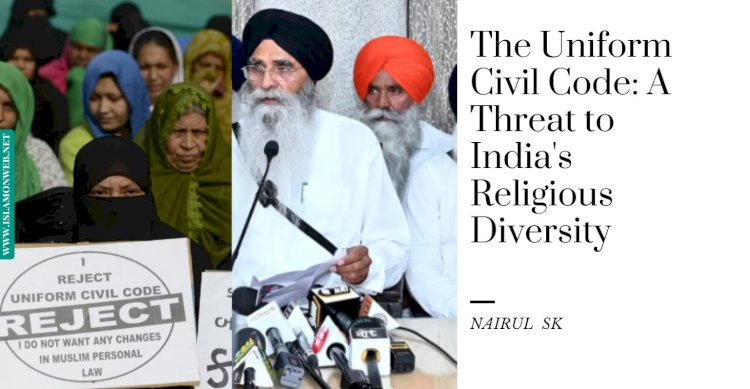


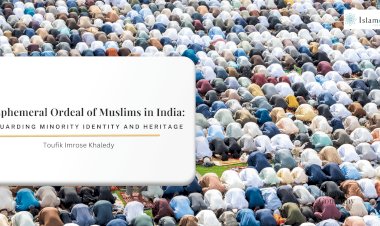
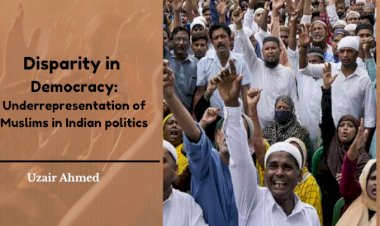
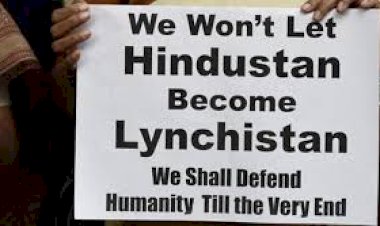


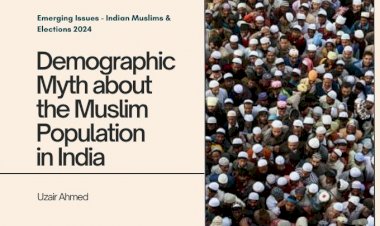














Leave A Comment